
This second part of a four-part interview of Dr. Graham was originally published August 16, 2014, and is reprinted with permission from Ola Huna: Health Secrets Made Simple
80/10/10: Cut Down Fat and Recover Twice as Fast from Workouts? (Part 2)
How can you survive, let alone thrive and be a top athlete, just on raw fruit and vegetables alone (a.k.a. are you nutters?)
If you are still reading, chances are you may wonder:
Isn’t fruit sugar
bad for you?
Isn’t fruit going to worsen diabetes?
Does eating fruit make you fat?
Don’t I need more fat to burn more fat and recover faster from workouts?
Well, last time around, we learned about what the 80/10/10 diet entails, why it is impossible to get too much sugar from fruit, why fruit sugar keeps you satiated, and why natural sugar is not the same as refined sugars.
Today, our interviewee, Dr. Douglas Graham, returns. We’ll pick up today from where we left off, address the above, and cover:
- Why you might want to eat more whole fresh fruit, even if you’ve been told that fruit makes you fat
- Why eating fruits does not cause or worsen diabetes and pancreatic cancer
- Why fructose should not be misconstrued as high fructose corn syrup
- Why a high carb and low fat diet is not to blame for today’s health problems, but a solution
- Why excessive fat intake is the culprit to today’s health problems
- Why plant fats are superior to animal fats
- Why you may want to cut down your fat intake and improve your sports performance
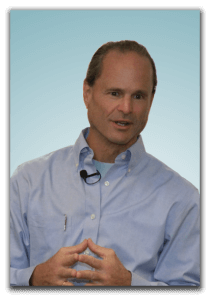
This is a multi-part series, so please stay tuned for updates on the next part!
Let’s get back to it as I continue to extract information from our interviewee:
Q: Now you talked about how fruits, eaten with fiber, sugar, enter the bloodstream quickly, but also exit just as quickly, making them an ideal food. Can you elaborate a little on that?
Dr. Douglas Graham: The concept is known as UTD, that is, uptake, transport, and delivery. We need to absorb nutrients into our bloodstream, transport them through the bloodstream, and deliver them to their destination, the cells.
For instance, sugar gets into our bloodstream fairly quickly. Sugar gets in under our tongue and through the stomach wall lining, and is also absorbed through the small intestines to go directly into the bloodstream.
But when there’s more fat in the bloodstream than we require’ once we go into double digit fat consumption in our diet, then the blood actually becomes thicker, and the transport of nutrients becomes sluggish, so sugar spends more time in the bloodstream.
At the delivery end is where we have the big problem, because fat in the diet impairs the pancreas’ secreted insulin to function as the doorman that allows sugar to get to the cells.
As a result, sugar builds up in the bloodstream. As the fat level in the bloodstream rises, a condition results known as insulin resistance. This condition is completely reversed when we lower fat in our diet. This has been shown by a variety of medical doctors.
In recent videos such as ‘How to Become a Diabetic in Six Hours,’ and as far back as 1959 in the Journal of the American Medical Association, it was declared that too much fat in the diet is the cause of diabetes, of high blood sugar.
If we want sugar to get out of the bloodstream and go to the cells where it belongs, it can only do so efficiently when there is low fat in the bloodstream and diet.
The same thing is true for oxygen. When you can’t get oxygen to the cells, you raise the likelihood of heart attack, cancer, and you impair fitness performance.
When you can’t get sugar to the cells, you increase the likelihood of diabetes, digestive disorders, and a wide variety of problems that are associated with this uptake, transport, and delivery issue.
This is all corrected as soon as we lower the fat in the diet.
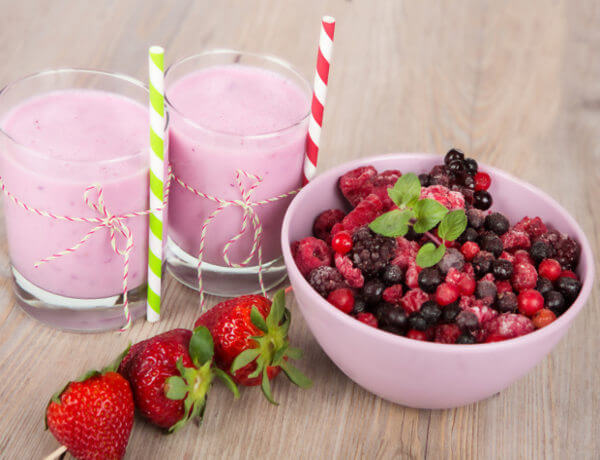
Q: This is really interesting, because a lot of people blame our high carb and low fat diet as the cause of today’s health problems. Some paleo advocates even suggest people to cut down on fruit if they want to lose weight for a certain period of time. And other people also claimed that if you have too much fruit, too much fructose, this may have feed pancreatic cancer. That’s what I read from a leading website. What are your thoughts on that?
Dr. Douglas Graham: Okay, there are several different issues there. I’ll try to break them down.
First let’s deal with the last issue, which is the fructose one. There is a study done on high fructose corn syrup.
Please understand that high fructose corn syrup is not the same thing as fructose; these are two completely different substances.
High fructose corn syrup is not the same thing as fructose.
And the studies recommended reduction of high fructose corn syrup. The study specifically said that the fructose in fruit has nothing to do with high fructose corn syrup, and that you can have all the fruit you want.
For the people to read ‘high fructose corn syrup’ and then condemn fruit completely not only disallows what the study said, but this also shows me that the people did not even bother reading the study, and that they don’t understand physiology.
We’re designed to consume fructose; our cells thrive on fructose.

The first part of the question was also actually complex, and I don’t know if you have it right there in front of you. For the listeners, would you just read the first part again? Because I’m going to break it into sections for you.
Q: Why is a high carb, low fat diet being blamed as the culprit to today’s health problems?
Dr. Douglas Graham: Okay. I’m in complete agreement that a diet that is moderately high in carbohydrate and moderately high in fat will result in problems. We see this over and over again.
The standard western diet runs somewhere around 45% of calories from carbohydrates, 10% from protein, and 45% from fat. This is a moderately high fat and moderately low carbohydrate diet, compared to the people who are recommending super low-fat diet.
It is a fascinating thing when we use the terms ‘high’ and ‘low,’ because high and low are relative terms. It depends what we’re comparing them to.
If we compare them to the recommended range, it’s one thing. If we compare them to what most people eat, it’s another. Most people don’t eat the recommended range. For instance, a lot of low carbohydrate diets are diets derive 30% of calories from carbs, as compared to the 45% that most people eat.
And a lot of studies on various low fat diets, were diets that consisted of 30% fat, instead of the 45% that most people eat.
However, 30% fat is still three times the recommended levels by health authorities, medical authorities, sports performance authorities, and World Health Organization levels (RDA = 3% – 10%). And 30% could be as much as 10 times higher than the recommended range.
But it is still lower than what most Americans eat, and so it’s considered a low fat diet, 30%. If I was eating 30%, that would be 3 or 4 times the amount of fat that I eat currently, and I would consider it very high fat.
So I agree with the paleo guys that if you eat a moderate amount of fat and a moderate amount of carbs, you’re going to end up with problems. It won’t work. In this case, if you want to lose weight, the quick way is to cut out some nutrient source. If you’re eating 45% of your calories from carbs and you just cut out carbs entirely and replace it with nothing, you’ve cut out a huge portion of your diet and your caloric intake, and you will lose weight. However, you’ll still have too much fat in your system, which is not good for you.
I’d also like to add that the answer I recommend is not losing weight per se, but living healthfully and letting your weight naturally come to a healthy level.
If you’re living healthfully, you will lose weight if you need to, gain weight if you need to, hold your weight if that’s what you need to do.
When the focus becomes ’lose weight’ instead of ’improve health,’ then I think people have missed the boat completely. I certainly do not want to lose weight at the expense of my health.

Q: Of course. So now you talked a lot about fat. What about good versus bad fats? Do you have any thoughts on that?
Dr. Douglas Graham: Sure. We know for a fact that plant fats are better for us than animal fats, simply due to the S/P ratio of plant fats compared to animal fats (saturated versus polyunsaturated fats.)
Most health authorities recommend that we should have about 85% of our fat intake coming from polyunsaturated sources, with only 10 to 15% coming from saturated fats.
Which is, oddly, exactly the numbers that you’ll find in plants.
In animals, that ratio reverses, because we utilize the polyunsaturated fats by converting them into saturated fats. Our body can’t make use of dietary saturated fats, so we take polyunsaturated fats, convert them into the types of fats that we need to use in our own body, In animal foods, what we find is that the saturated levels run about 85%, polyunsaturated only 15%. This is the exact opposite of the recommended range.
When we consume saturated fats, essentially the body can’t do anything with them. They’re already saturated. We can’t add anything to them. We have to start with unsaturated fats, to which we can add various nutrients, as that is how the body uses them.
When we consume animals, we’re working with a polyunsaturated level of only 15%, where what we need is 85%. This is hugely different. So I agree that plant fats are far more beneficial to our health than animal fats, this has been shown in countless studies since the ’50s.
When we heat fats, we degrade them in ways that are exceptionally horrendous for human health. I mean, really terrible for human health. We know that cancer-causing carcinogens are formed when we heat fats, especially at high levels, like searing on a grill. We know that fats go bad and turn rancid very quickly in heat, which is why most fatty substances are required to be kept as cold as possible.
For instance, if you just store butter at room temperature, it goes rancid very quickly so you keep butter in the refrigerator. We know that fats go bad when we heat them, and raw fats invariably are going to be better for us than cooked fats.
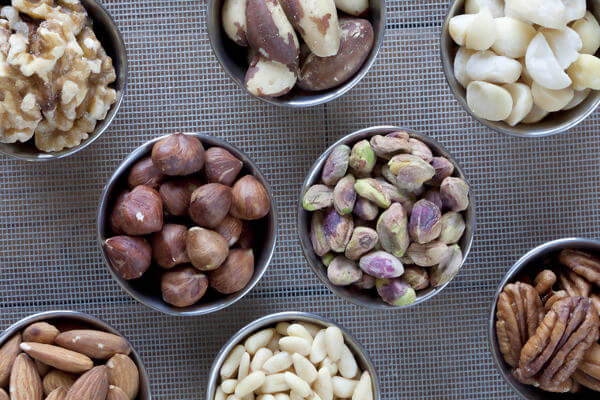 Q: However, you still recommend limiting raw plant fats to 10% because . . .
Q: However, you still recommend limiting raw plant fats to 10% because . . .
Dr. Douglas Graham: But at the end of the day, too much fat is too much fat, and that affects our blood chemistry adversely.
Too much fat affects our ability to uptake oxygen.
I have seen people who were desperate to uptake oxygen, people at two ends of the spectrum. First, we see them at the world class athlete level, where they’re trying to perform, and the limiting factor is oxygen, not fitness. Secondly, we see it at the other end of the spectrum, where we have people with various lung disorders, and they can’t take in enough oxygen.
Take emphysema as an example. People with this condition can’t take in enough oxygen from the air. You take someone with emphysema, who can only walk a few steps without having to stop to breathe, take them off their diet, put them onto 80/10/10 and a low fat diet. I’ve seen these people, within 24 hours, who weren’t able to take a few steps, to being able to walk miles on the beach.
Nothing helped in terms of the health of their lungs. However, their ability to transport oxygen improves so greatly by lowering blood fat. We’ve seen the same thing with athletes, whom we measure their VO2 max – their maximum ability to transport oxygen through the blood.
If you take an athlete and lower the fat in their diet, their VO2 max rises instantaneously, without any training effect, simply as a result of a dietary change. We can see in 24 hours an improvement in VO2 max. This is a huge implication for all humans.
Q: Yeah, this is really interesting, because this is very different from what I hear from high fat advocates. Because some of them would argue that fat has no relation to diseases, etc. I don’t know if you’ve anything else to add on that front?
Dr. Douglas Graham: I think we can clearly demonstrate the relationship of a high fat diet to our rise in cancer , heart disease, diabetes, candida, chronic fatigue, digestive disorders. All of these are diseases of the 20th century, and now 21st century.
These diseases began when we first began the experiment with a high fat diet. Before we mechanized farming, rarely did anyone eat a high fat diet, except for a few ultra-wealthy families and ruling class individuals.
Without the introduction of the internal combustion engine and use of tractors, we couldn’t raise enough food to feed large numbers of cattle, cow, pigs, so we only had a low fat diet. We could eat plants at that time, rather than the animals that ate the plants.
Up until this experiment with the high fat diet, which literally began in the very late 1800s, we did not have that much fat in our diet. If you wanted to say 1900 was the institution of the experimental beginning of the high fat diet, we’ve tried it now for a little over 100 years. And it has failed bitterly.
We’ve seen massive increase in cancer, heart disease, diabetes. This is killing us left, right, and center, dramatic lowering longevity rates. Overall, we’re doing poorly on the high fat diet.
This takes us to the end of Part 2. Stay tuned for the next part. We’ll address:
- Why we do not need as much protein as we think
- Why meat is a ‘fat’ food, not a ‘protein’ food
- What to eat when you’re training intensively
- Why you can be very fit and very sick (Ever wonder why so many athletes are out due to sickness?)
- What to eat if you have trouble digesting vegetables
This second part of a five-Part interview of Dr. Graham can be found on Ola Huna: Health Secrets Made Simple by Nicole Lana Lee. Reprinted with permission. Nicole Lana believes that exercise is non-negotiable, and that a nutrient dense, plant-based diet is the cure to many problems, from obesity to cancer to global warming, that we are facing these days. And Ola Huna serves to educate readers and transform their lifestyle gradually, making an impact on your health, as well as the planet’s well being.
Articles:
- Fruit, the Most Misunderstood Food by Dr. Graham
- Fruit, Fruit, More Fruit … and Fruitarianism by Dr. Graham
- The Low-Fat Diet in a Nutshell by Dr. Graham
- The Challenges of Going on a Raw Food Diet by Dr. Graham
- How Diabetes Develops In a Person Over Time: And how it can be reversed in an even shorter time. by Dr. Graham
Retreats:
Practical Skills To Thrive 
|
Amp Up Your Fitness 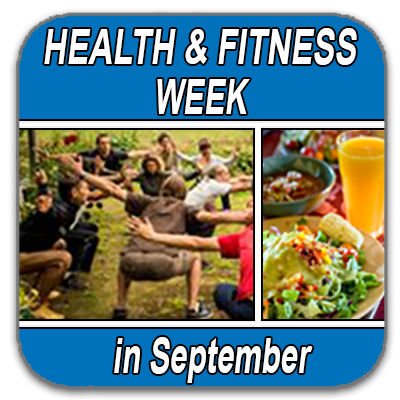
|
Self-Study Materials:
Perfect Health Program 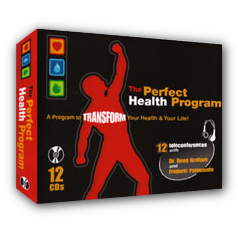
|
The Cause of Health (DVD) 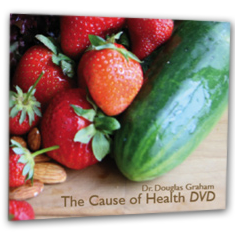
|
The Cause Of Health: Dr. Graham’s Lectures (10 CDs) 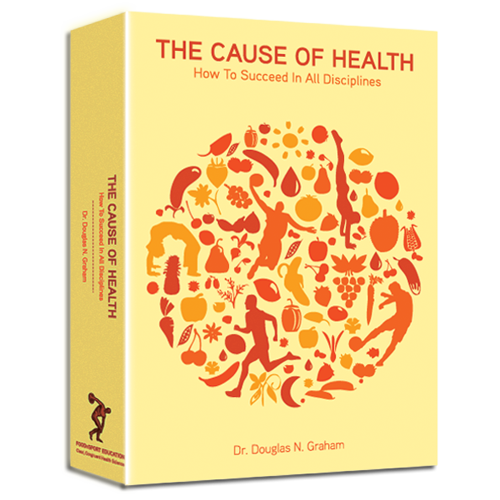
|

